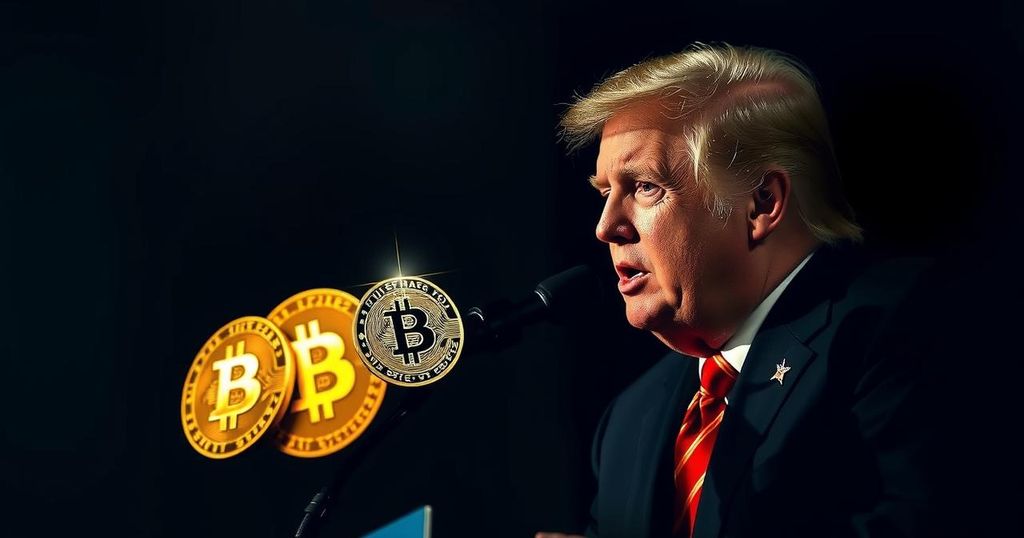China Condemns U.S. Military Aid to Taiwan Amid Rising Tensions
President Biden has approved $567 million in military aid to Taiwan, which has provoked stern opposition from China. The aid will supply defense items and military training, using the presidential drawdown authority aimed at bolstering Taiwan’s military capacity amid increasing Chinese provocations. China asserts that this decision violates the one-China principle and heightens tensions in the region, particularly towards the DPP government in Taiwan.
The United States, under President Joe Biden, has recently approved the allocation of $567 million in military aid to Taiwan, igniting a robust response from China. During a press briefing, Chinese Foreign Ministry spokesperson Lin Jian articulated opposition to this decision, stating that the U.S. actions in arming Taiwan would ultimately be counterproductive. The funds authorized by President Biden are designated for defense items, services, and military training, utilizing his presidential drawdown authority (PDA), which allows for the rapid transfer of military supplies from U.S. stockpiles to foreign allies. In this case, Taiwan, which China views as a part of its territory, receiving this military hardware underscores the island’s ongoing defense strategies under escalating pressure from mainland China. China has intensified its military maneuvers around Taiwan, aiming to penalize the ruling Democratic Progressive Party (DPP) for its perceived pro-independence stance. Lin remarked that the provision of additional weapons to Taiwan contravenes the long-standing one-China principle and serves to embolden the Taiwanese government’s independence efforts. The one-China principle asserts that there is only one China, a position the U.S. acknowledges while also continuing to support Taiwan’s defense capacities under the Taiwan Relations Act of 1979. Biden’s latest use of the PDA marks the 50th invocation of this authority, primarily seen in context with U.S. defense assistance to Ukraine amidst its conflict with Russia. Taiwan continues to face challenges with delayed military orders, amounting to an estimated $20 billion in outstanding requests for sophisticated weaponry. Recent reports indicated that defense supplies sent under the PDA had not always met quality expectations, prompting the Pentagon to declare improvements in the PDA processes for Taiwan.
The ongoing tensions between China and Taiwan are rooted in historical claims, with China asserting that Taiwan is part of its territory and remaining committed to eventual unification. This position has prompted the United States to strategically support Taiwan’s defense capabilities while maintaining a policy of ambiguity regarding its status. The Taiwan Relations Act compels the U.S. to ensure that Taiwan possesses the means for self-defense, reflecting a delicate balance between supporting a democratic ally and navigating complex diplomatic relations with China. President Biden’s recent decision to authorize military aid exemplifies the U.S. commitment to Taiwan amid perceived threats from an increasingly assertive China. Given the context of deteriorating Sino-American relations, especially in light of military activities surrounding Taiwan, this military assistance is more critical than ever as Taiwan maintains its sovereignty against external pressures.
In summary, the recent authorization of $567 million in military aid to Taiwan by President Biden represents a significant U.S. commitment to supporting Taiwan’s defense amid rising tensions with China. This situation highlights the complex dynamics of international relations, involving principles of sovereignty, regional security, and the geopolitical interests of the U.S. and China. As Taiwan grapples with military assertiveness from China, its need for developed defense capabilities remains a pressing issue. The responses from both the U.S. and China underscore the intricate and often contentious reality of cross-strait relations, indicating that the discourse on Taiwan’s independence is likely to intensify moving forward.
Original Source: www.newsweek.com








Post Comment